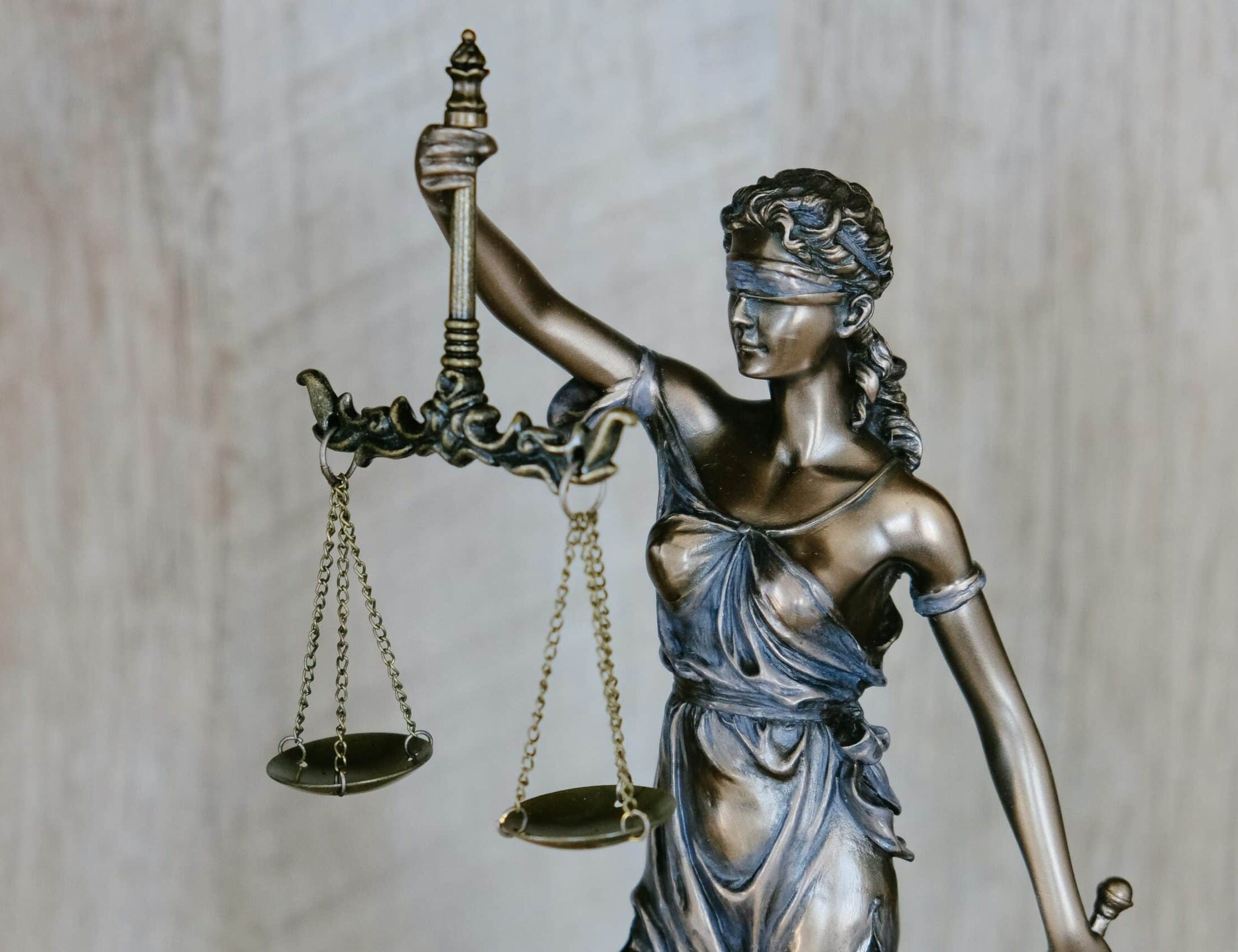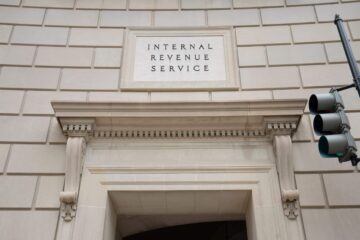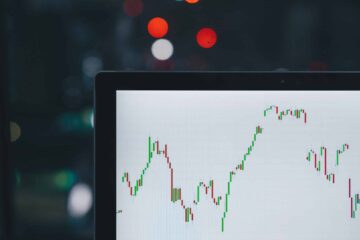
Posted April 30, 2024 at 3:50 pm EST.
Binance founder and former CEO Changpeng Zhao was sentenced on Tuesday to four months in prison for his role in the crypto giant’s anti-money laundering failures.
Known to the crypto world as CZ, Zhao is one of the wealthiest people in the industry, as well as the world at large, with a net worth that Forbes estimates at $33 billion. His sentencing follows a years-long investigation into crypto’s largest exchange that resulted in CZ’s guilty plea and $4.3 billion in financial penalties for the exchange and a $50 million fine for CZ personally.
The $4.3 billion is one of the largest penalties that the U.S. government has ever imposed, and is the second-largest for banking compliance failures, behind only the $8.9 billion levied against BNP Paribas. CZ’s sentence is also unique in consisting of actual jail time.
Unchained has compiled other recent banking prosecutions from across crypto, tradfi, and even the casino industry to provide a comparison.
1. Who: Arthur Hayes, founder and CEO of BitMex
Charges: Oct. 1, 2020: One count of violating the Bank Secrecy Act (BSA), one count of conspiracy to violate the BSA.
Sentence: Six months of house arrest and two years of probation for Hayes. Three other BitMex leaders got probation periods of between one year and 30 months, with no other confinement or incarceration.
One of the heroes of the early crypto market, Hayes founded the massive BitMex exchange, which offered derivatives that included futures trading and 100x leverage that the US does not allow retail investors to access. Like Zhao, Hayes made efforts to avoid operations in the US that did not find favor with US authorities.
“Despite repeatedly stating that BitMEX did not serve U.S. customers, including to members of the press and others outside of BitMEX, Hayes and Delo both knew that BitMEX’s purported withdrawal from the U.S. market in or about September 2015 was a sham, and that purported ‘controls’ BitMEX put in place to prevent U.S. trading were an ineffective facade that did not, in fact, prevent users from accessing or trading on BitMEX from the United States,” the Justice Department wrote in a press release.
Hayes would ultimately plead guilty to one count of violating the BSA before the Southern District of New York.
Today, Hayes operates the Maelstrom Fund, investing in new crypto projects. When the DoJ’s charges and massive fines against Binance and Zhao came out, Hayes blogged his skepticism: “Was Binance so big and bad that it committed more crimes than any bank in American history, some of which have existed for centuries?”
2. Who: Chun “Michael” Gan and Ke “Eric” Tang, founders of KuCoin
Charges: March 21, 2024: As individuals, Gan and Tang are each facing one count of conspiring to violate the BSA, and one count of conspiracy to operate an unlicensed money transmitting business. The Commodity Futures Trading Commission filed a civil suit at the same time.
Sentence: Unknown; founders remain at large. Charges are similar to the BitMex and Binance cases but Gan and Tang are significantly less familiar public figures than Hayes or Zhao.
“Today’s Indictment should send a clear message to other crypto exchanges: if you plan to serve U.S. customers, you must follow U.S. law, plain and simple,” U.S. Attorney Damian Williams wrote in a statement at the time of the indictment.
Read more: KuCoin’s Exchange Reserves Drop by $273 Million Amid Charges of Anti-Money Laundering Violations
3. Who: BNP Paribas
Charges: June 30, 2014: Massive sanctions violations
Sentence: A massive forfeiture of $8.9 billion and a fine of $140 million, but no individual prosecutions of anyone involved.
The French bank pleaded guilty to operating in sanctioned jurisdictions — specifically Sudan, Cuba, and Iran—over the span of more than a decade. It is to date the largest forfeiture the U.S. has ever ordered for these kinds of compliance crimes.
The case specifically emphasizes that BNP Paribas’s involvement helped the Sudanese government access finances during the period of time that that government was conducting a genocide in Darfur.
No individuals were named or prosecuted by authorities at the time. Victims of the Darfur genocide filed a class action in 2016 that, though dismissed in 2018, is back in the courts as of this April.
4. Who: Wells Fargo, and Carrie Tolstedt, the bank’s former retail banking chief
Charges: Feb. 21, 2020: Prosecutors settled and agreed not to file charges against Wells Fargo. They subsequently charged Tolstedt with obstruction of a bank examination.
Sentence: Wells Fargo paid a $3.7 billion fine. Tolstedt got six months of home confinement and three years of probation, as well as a $100,000 fine of her own.
Wells Fargo admitted to several illegal practices, including charging its clients with wrongful fees and, most shockingly, opening millions of fake accounts in the names of clients unaware of those accounts across the country for a period of over 14 years.
The case was a completely different kind of offense than the other players in this lineup, but was a rare example of someone at a traditional banking giant facing individual charges. Tolstedt’s sentence, however, was largely seen as underwhelming given prosecutors’ aim to send a message.
“The sentence must afford adequate deterrence: corporate wrongdoers must be sent a clear message that maintaining a lucrative position through criminal behavior is not worth the risk,” reads the government’s argument for prison time for Tolstedt.
5. Who: Danske Bank
Charges: Dec. 13, 2022: Conspiracy to commit bank fraud
Sentence: A $2 billion fine; no individual prosecutions
The DoJ’s case against Danske Bank is perhaps the most similar to that against Binance to hit a major player in tradfi. U.S. authorities allege that the Danish bank lied to U.S. banks in order to get access to the U.S. financial system on behalf of its Estonian affiliate. Furthermore, the DoJ alleged that this was particularly aimed at linking Russian money to U.S. banks.
“Danske Bank, the largest bank in Denmark, deliberately disregarded U.S. law of which it is well aware, facilitated the laundering of criminal and suspicious proceeds through the United States, and placed the U.S. financial network at risk, all in the name of its bottom line,” said U.S. Attorney Damian Williams in a statement alongside the charges.
6. Who: MGM Grand and former president Scott Sibella
Charges: Jan. 25, 2024: Failure to report suspicious transactions, as required by the BSA.
Sentence: Sibella is set to be sentenced next week. The prosecutors have recommended a “12-month period of probation and a fine of $9,500,” which sets the upper threshold of what awaits him. They also fined MGM Grand and the Cosmopolitan a combined $7.5 million.
Per the government’s statement of facts, Sibella maintained a fairly cozy relationship with a high roller named Wayne Nix, who made a living as an illegal bookie. But instead of filing requisite suspicious activity reports on transactions with Nix, Sibella and MGM Grand’s marketing team persistently wooed Nix with free offerings to spend weekends gambling at their casinos.
- SEO Powered Content & PR Distribution. Get Amplified Today.
- PlatoData.Network Vertical Generative Ai. Empower Yourself. Access Here.
- PlatoAiStream. Web3 Intelligence. Knowledge Amplified. Access Here.
- PlatoESG. Carbon, CleanTech, Energy, Environment, Solar, Waste Management. Access Here.
- PlatoHealth. Biotech and Clinical Trials Intelligence. Access Here.
- Source: https://unchainedcrypto.com/how-binance-founder-czs-sentence-compares-to-other-recent-crypto-and-banking-prosecutions/
- :has
- :is
- :not
- $3
- 000
- 1
- 100x
- 13
- 14
- 2014
- 2015
- 2016
- 2018
- 2020
- 2022
- 2024
- 21
- 25
- 30
- 5
- 50
- 500
- 7
- 9
- a
- About
- access
- accessing
- Accounts
- across
- Act
- Action
- activity
- actual
- adequate
- admitted
- Affiliate
- afford
- against
- agreed
- aim
- aimed
- All
- alleged
- allow
- alongside
- also
- American
- Amid
- an
- and
- anti-money laundering
- any
- anyone
- April
- ARE
- argument
- arrest
- Arthur
- arthur hayes
- AS
- At
- attorney
- Authorities
- avoid
- aware
- back
- Bad
- Bank
- bank secrecy act
- Bank Secrecy Act (BSA)
- Banking
- Banks
- BE
- before
- behalf
- behavior
- between
- Big
- Billion
- binance
- BitMEX
- bitmex exchange
- bookie
- both
- Bottom
- BSA
- business
- but
- by
- came
- case
- cases
- Casino
- Casinos
- centuries
- ceo
- Changpeng
- Changpeng Zhao
- charged
- charges
- charging
- civil
- class
- Class Action
- clear
- clients
- combined
- commission
- commit
- committed
- commodity
- comparison
- compiled
- completely
- compliance
- conducting
- Consisting
- Conspiracy
- Corporate
- count
- country
- Courts
- Crimes
- Criminal
- crypto
- Crypto Exchanges
- Crypto Market
- crypto projects
- Customers
- CZ
- CZ’s
- Damian Williams
- danish
- danske
- Date
- decade
- Denmark
- Department
- Derivatives
- DID
- different
- district
- does
- DoJ
- Drop
- during
- each
- Early
- efforts
- emphasizes
- estonian
- Even
- EVER
- examination
- example
- exchange
- Exchange Reserves
- Exchanges
- existed
- facilitated
- facing
- fact
- facts
- Failure
- failures
- fairly
- fake
- familiar
- favor
- Feb
- Fees
- Figures
- File
- filed
- Filing
- Finances
- financial
- financial system
- Find
- fine
- fined
- fines
- follow
- follows
- For
- Forbes
- forfeiture
- Former
- former ceo
- Founded
- founder
- Founder and CEO
- founders
- four
- Free
- French
- French Bank
- from
- fund
- Furthermore
- Futures
- Futures Trading
- Gambling
- get
- giant
- given
- got
- Government
- grand
- guilty
- guilty plea
- Have
- helped
- her
- Heroes
- High
- him
- his
- history
- Hit
- Home
- House
- How
- However
- HTTPS
- if
- Illegal
- imposed
- in
- incarceration
- included
- Including
- indictment
- individual
- individuals
- industry
- instead
- into
- investigation
- investing
- Investors
- involved
- involvement
- IT
- ITS
- jail
- JAIL TIME
- Jan
- jpg
- june
- jurisdictions
- Justice
- Justice Department
- Kind
- kinds
- knew
- large
- largely
- largest
- Laundering
- Law
- leaders
- less
- Leverage
- like
- Line
- lineup
- linking
- living
- lucrative
- made
- maintained
- maintaining
- major
- March
- Market
- Marketing
- massive
- Members
- message
- million
- millions
- money
- months
- more
- most
- must
- name
- Named
- names
- net
- network
- New
- new crypto
- New York
- next
- next week
- no
- Oct
- of
- offered
- Offerings
- on
- ONE
- only
- opening
- operate
- operates
- operating
- Operations
- or
- order
- Other
- Others
- out
- outside
- over
- own
- paid
- particularly
- penalties
- People
- perhaps
- period
- periods
- persistently
- Personally
- Place
- placed
- Plain
- plan
- plato
- Plato Data Intelligence
- PlatoData
- player
- players
- plead
- pm
- position
- posted
- practices
- president
- press
- Press Release
- prevent
- prison
- proceeds
- projects
- prosecuted
- prosecutions
- prosecutors
- provide
- public
- put
- RARE
- reads
- recent
- recommended
- relationship
- release
- remain
- REPEATEDLY
- report
- Reports
- required
- requisite
- reserves
- resulted
- retail
- Retail Banking
- Retail Investors
- Risk
- Role
- russian
- s
- Said
- same
- Sanctioned
- Sanctions
- scott
- second-largest
- seen
- send
- sent
- sentence
- sentenced
- September
- serve
- set
- Sets
- Settled
- several
- should
- significantly
- similar
- Simple
- SIX
- Six months
- Skepticism
- So
- some
- Someone
- Southern
- Southern District of New York
- span
- specifically
- spend
- Statement
- States
- stating
- Subsequently
- Sudan
- Suit
- suspicious
- system
- tang
- team
- than
- that
- The
- the world
- their
- These
- they
- this
- those
- though?
- three
- threshold
- Through
- time
- to
- TradFi
- Trading
- traditional
- traditional banking
- Transactions
- Tuesday
- two
- u.s.
- U.S. government
- Ultimately
- unaware
- Unchained
- underwhelming
- unique
- United
- United States
- unknown
- unlicensed
- us
- users
- victims
- violate
- Violating
- was
- wealthiest people
- week
- WELL
- Wells
- Wells Fargo
- were
- What
- when
- which
- WHO
- Williams
- with
- withdrawal
- world
- worth
- would
- wrote
- year
- years
- york
- you
- zephyrnet
- Zhao












